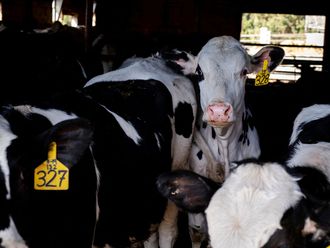BOGOTA: Colombia’s government and rebels from the Revolutionary Armed Forces of Colombia (FARC) announced late on August 24 they had reached a final peace accord to end a 52-year-old guerrilla war, bringing an end to one of the world’s longest conflicts.
The deal, opposed by two former Colombian presidents, still needs to be voted on in a plebiscite.
Colombia’s President Juan Manuel Santos said on August 24 that Colombians would decide to approve or reject the peace accord in a plebiscite vote on October 2.
More than a quarter of Colombia’s 47 million people have suffered in some way as a result of the war involving rebels, right-wing paramilitary groups and government troops.
Here are eight humanitarian consequences of Colombia’s war:
There are nearly 8 million war victims registered on the government’s official register, the majority of whom have been forcibly driven from their homes by the warring sides.
With 6.7 million people uprooted, Colombia has one of the world’s highest displaced populations. Indigenous groups and Afro-Colombian communities have been disproportionately affected by displacement.
More than 230,000 children have been forced to flee their homes since peace talks with the FARC began in November 2012.
Around 7,850 child soldiers have fought in rebel and paramilitary ranks.
Over the decades, rebel groups have planted landmines to push back government troops making Colombia quite literally a minefield. It’s not known exactly where all the landmines are.
After Cambodia and Afghanistan, Colombia has the third highest number of landmine casualties, with 11,440 people, including civilians, children and soldiers killed or injured by landmines since 1990.
Rape has been used as weapon of war by all factions. Around 14,000 women, men and children have been victims of sexual violence.
At least 40,000 Colombians have disappeared without trace during the conflict.
Sources: Colombian government’s victims’ unit, International Committee of the Red Cross (ICRC), United Nations Children’s Agency (Unicef).












